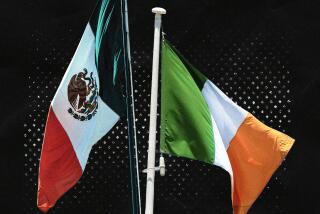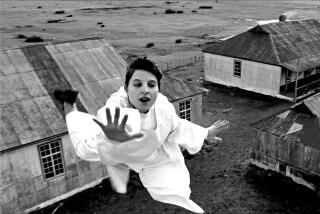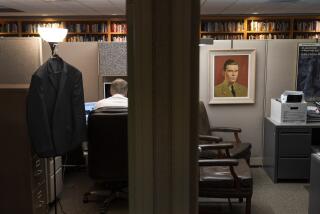Bay of Pigs and the limits of superpower
Fifty years ago Tuesday, a ragtag army of Cuban exiles — recruited, trained and armed by the United States — was scrambling across the Playa Giron on the southern coast of Cuba, retreating under fire in the wake of a badly botched invasion. In Washington, the CIA officials who had planned the operation gathered around a radio to hear a final message from the brigade commander, who had been pleading all day for supplies and air cover. “Tanks are in sight,” he said. “I have nothing left to fight with. Am taking to the woods. I cannot, repeat, cannot wait for you.” The radio went dead.
That was the end of the fiasco that had begun three days earlier when about 1,400 Cuban exiles rowed across the Bay of Pigs in the early morning darkness, with American destroyers and carriers watching and waiting in the waters nearby. The goal of the operation, according to a secret “eyes-only” memo approved by President Eisenhower a year earlier, was “to bring about the replacement of the Castro regime with one more devoted to the true interests of the Cuban people and more acceptable to the U.S. in such a manner to avoid any appearance of U.S. intervention.”
But it didn’t work out as Eisenhower had originally conceived it or as President Kennedy had subsequently approved it. Instead, when the Cubans landed, they found that their intentions were anything but secret and that they were heavily outgunned. At the last minute, Kennedy canceled a critical airstrike designed to provide cover for the invaders and without which they were at the mercy of Fidel Castro’s forces. The assumption that the people of Cuba would rise up to assist in Castro’s overthrow proved hollow. The assumption by CIA leaders that if anything went wrong, Kennedy would surely commit further forces and resources also proved incorrect. Repeated denials by American officials that the U.S. had planned and run the operation were undermined almost immediately by evidence to the contrary. More than 1,000 members of the invading force were captured.
In the end, the United States was deeply embarrassed, the Cuban revolution was strengthened, Castro was pushed further into the arms of the Soviet Union, and Kennedy famously asked: “How could we have been so stupid?”
The Bay of Pigs operation was only one of many American interventions aimed at beating back left-wing insurgencies and revolutions during the Cold War (often to the advantage of repressive, undemocratic regimes with which the U.S. had allied itself). Still, it stands out as a textbook example of American bungling overseas, characterized by untested assumptions, repeated miscommunication and a strange combination of arrogant overconfidence and last-minute jitters.
It is tempting to make comparisons to today’s entanglements in Iraq, Afghanistan and Libya, but of course the details are very different. The Bay of Pigs operation, for example, was planned in the context of a bipolar global struggle; the United States’ Soviet rivals had seemingly gained a communist beachhead just 90 miles off the coast of Florida. Indeed, a year later, the two superpowers would nearly go to war over the USSR’s decision to base intermediate-range nuclear missiles in Cuba. The Bay of Pigs invasion was, furthermore, supposed to be covert; our contemporary wars in the Middle East are not.
Still, there are broader lessons. These days not just conservatives but liberals as well are arguing that the United States has a significant role to play in determining political outcomes in nations around the world. But it is important to remember that American judgment is not always foolproof, American planning is not always successful and the use of power is rarely predictable, and should be undertaken only as a last resort. A superpower cannot always have its way even with a much smaller country, especially when the planners are many miles away and are insufficiently familiar with the culture and politics of the nation they hope to influence.
The proof? Fidel Castro and his brother Raul (who was rumored to have committed suicide on April 19, 1961, because the invasion was supposedly going so well) still hold power in Cuba five decades later. What more needs to be said?
More to Read
A cure for the common opinion
Get thought-provoking perspectives with our weekly newsletter.
You may occasionally receive promotional content from the Los Angeles Times.






